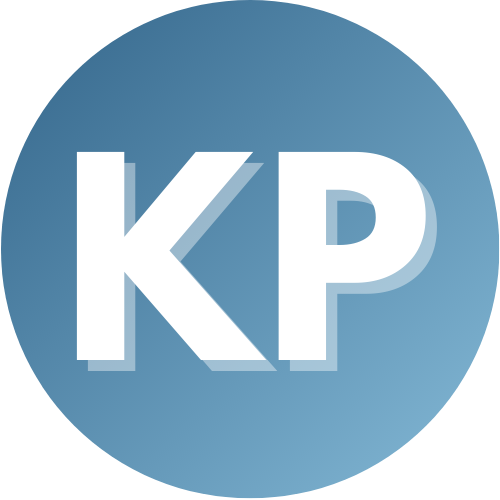CAPITOL NEWS: 2025 Legislative Bill Introductions
With last week’s bill introduction deadline, the California State Legislature introduced 2,350 bills for the 2025 session. Legislators have a bill introduction cap of 35 bills each over the two-year session, making this year’s bill count one of the smallest in year one of a session since 2015. Below are just a sampling of the controversial issues we are watching for our clients and PPHC companies:
Environmental Mandates
AB 405 (Addis) would require fashion retailers to engage in “environmental due diligence” concerning their products and supply chains by requiring affected retailers to “identify, cease, prevent, mitigate, account for, and remediate actual and potential adverse impacts to the environment in their own operations and supply chain.” The bill would apply to “fashion sellers” who sell apparel and footwear in California, and whose annual gross receipts for the sale of private label items exceeds $100 million.
SB 684 (Menjivar) and AB 1243 (Addis) would enact the “Polluters Pay Climate Superfund Act of 2025” to require fossil fuel companies that extract, produce, refine, sale, or combust petroleum fuel products, to pay into a fund for damage caused by greenhouse gas emissions released into the atmosphere between the years of 1990 and 2024.
SB 682 (Allen) would phase out all non-essential uses of PFAS in consumer, commercial, and industrial products by creating a more structured process to ban the sale or distribution of products containing “intentionally added PFAS,” defined as PFAS that has a functional or technical effect in the product, including PFAS components of intentionally added chemical mixtures, and PFAS used or produced during a product’s manufacture or processing, regardless of whether it has a functional or technical effect in the product. It would eliminate most of the exemptions established under existing PFAS-in-product ban laws.
Energy: Electricity, Nuclear Fusion, Solar and Offshore Wind
SB 540 (Becker) would create the so-called “Pathways Initiative” to allow for the creation of an expanded western electricity market by allowing utilities to procure energy in a larger regional market to help lower energy bills, improve grid reliability, and meet the state’s clean energy goals.
SB 80 (Caballero) would accelerate the development and growth of fusion energy in California by creating fusion energy hubs to advance fusion science and technology, with the goal of delivering the world’s first fusion energy pilot plant in the state by 2040.
AB 1260 (Ward) would strengthen and expand the initial framework for California’s community solar plus storage program by ensuring fair compensation for community solar projects that will provide greater access to low-income residents, renters, homebuilders, and agricultural landowners.
AB 472 (Rogers) would require the state to prepare a port infrastructure improvement plan that identifies necessary funding and port improvements to accommodate floating offshore wind projects and meet the state’s offshore wind goals .
Cap-and-Trade to Reduce Greenhouse Gas Emissions
SB 840 (Limon) and AB 1207 (Irwin) are placeholder bills to reauthorize the state’s market-based compliance tool (Cap-and-Trade) that helps entities meet their greenhouse gas reduction obligations, but is scheduled to sunset in 2030. The bills provide an opportunity for possible policy changes that address energy affordability, while providing market certainty to ensure significant dollars can be secured to pay for the state’s climate reduction programs.
SB 57 (Padilla) would require the state to establish a special rate structure to protect residential ratepayers and small businesses from the cost of building new transmission lines which supply data centers while meeting the state’s climate goals.
Property Insurance Crisis
AB 226 (Calderon) – Fair Plan Bonds: This bill would authorize the Fair Plan, the state’s insurer of last resort for California residents, to issue bonds to finance the costs of policyholder claims, to increase liquidity and claims-paying capacity and to refund any previous bonds issued for that purpose. This bill was introduced to keep the Fair Plan solvent following the LA County wildfires which exposed the Plan to massive liability.
SB 525 (Jones) – Fair Plan Coverage of Manufactured Homes: This bill would extend coverage under the Fair Plan to manufactured homes by redefining “basic property insurance” to treat manufactured homes like residential dwellings for insurance coverage purposes.
SB 222 (Weiner) would allow insurance companies and the state’s insurance of last resort (FAIR Plan) to seek damages and recoup losses in court for major climate disasters from fossil fuel companies allegedly responsible for the damage.
Wildfire Prevention
AB 270 (Petrie-Norris) would create a pilot project in CAL FIREfor autonomous aerial firefighting technology, using blackhawk helicopters equipped with both aerial autonomy technology and rapid fire suppression technology.
SB 616 (Rubio) – Community Hardening Commission: Wildfire Mitigation Program: This bill establishes a Community Hardening Commission tasked with developing new wildfire community hardening standards with a goal to reduce fire risk and improve access to fire insurance in the state.
Automated Decision Making
AB 1018 (Bauer-Kahan) would regulate the development and deployment of an automated decision system (ADS) used to make consequential decisions. The bill would require a developer of a covered ADS to take certain actions, including conducting performance evaluations of the covered ADS and providing deployers to whom the developer transfers the covered ADS with certain information.
Development and Deployment of Artificial Intelligence
AB 410 (Wilson) would make it unlawful for any person to use a bot to communicate or interact with another person in this state online, unless the person using the bot discloses that it is a bot, and would require a person using a bot to disclose that it is a bot if asked or prompted by another person.
AB 1018 (Bauer-Kahan) would generally regulate the development and deployment of an automated decision system (ADS) used to make consequential decisions, as defined. The bill would define “automated decision system” to mean a computational process derived from machine learning, statistical modeling, data analytics, or artificial intelligence that issues simplified output, including a score, classification, or recommendation, that is used to assist or replace human discretionary decision-making and materially impacts natural persons.
AB 1018 (Bauer-Kahan ) would generally regulate the development and deployment of an automated decision system (ADS) used to make consequential decisions, as defined. The bill would define “automated decision system” to mean a computational process derived from machine learning, statistical modeling, data analytics, or artificial intelligence that issues simplified output, including a score, classification, or recommendation, that is used to assist or replace human discretionary decision-making and materially impacts natural persons.
SB 11 (Ashby ) would define various terms related to artificial intelligence and synthetic content, and would clarify that use of such synthetic content, as specified, is deemed to be a false personation for purposes of these and other criminal provisions.
Data Centers: Energy Use and Rates
AB 222 (Bauer-Kahan D) would require a data center that provides computing resources to a developer for the purpose of developing a covered model, to estimate the total energy used to develop the covered model and to report that information to the developer. The bill would require a developer, before using the computing resources of a data center to develop a covered model, to inform the data center of the developer’s intent to develop a covered model.
SB 57 (Padilla) would, under the Ratepayer and Technological Innovation Protection Act, require the Public Utilities Commission, on or before July 1, 2026, to establish a special rate structure for data centers, as defined, that, among other things, protects residential ratepayers and small businesses and prevents cost shifts to those existing ratepayers and ensures electrical grid investments to serve data centers are fully recovered, as specified.
Water Quality
SB 601 (Allen) overhauls California’s water quality law and adds a private right of action for alleged violations of state-level water quality law violations. While the messaging around this bill presents it as a means of closing a “gap” left by recent Supreme Court decisions on the federal Clean Water Act, the bill as written goes far beyond and changes what has been settled law for decades, which creates new compliance hurdles and litigation exposure for permittees like agricultural entities, construction operations, and wastewater treatment entities.
ABOUT KP PUBLIC AFFAIRS
Comprehensive Services to Manage Issues at Every Level of Government
Public Relations. KP provides strategic communications services to impact issues, legislation, and policy and regulatory decision-making. We develop a strategy designed to achieve our client’s goals and implement that plan with a variety of tactics including message development, media relations, ally and grassroots advocacy, and social and digital media.
Legislative and Regulatory Lobbying. KP provides strategy-based lobbying focused on policy, politics, and the legislative process, bringing favorable outcomes for our clients. KP engages with policymakers, state agencies, boards, and commissions, managing issues throughout the decision-making process to ensure our clients’ objectives are met.
Consulting. With California on the cutting edge of technology, energy, health care, and transportation, KP provides critical information about state regulatory proposals, policies, the state budget, and other information that will have a substantial impact on a particular industry sector. KP also helps companies with permitting and administrative decisions before the California Coastal Commission, the California Energy Commission, and the California Environmental Protection Agency to name a few.
KP Can Serve Your CA Public Affairs Needs
If you would like to learn more about any of these issues, please contact Jenny Dudikoff at jdudikoff@ka-pow.com.
Read more KP news here.


